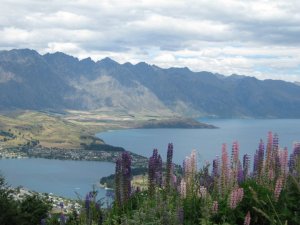The world moves faster now than it’s ever done, we are working more hours, our lives re busier, expectations are higher and the pace of life has quickened to a point where we’re struggling to keep up.
The technological age means we’re now on call 24/7, we are checking our emails on handheld devices at 10pm, we are in touch with friends and the world news all times of the day and night, as a result we never switch off. One of the best antidotes to our busy lives is taking a few minutes out of each day to be still, meditation is a way of reconnecting with yourself, feeling grounded even among the chaos and teaches us to be more aware of the present moment.
We are also hearing a lot these days about Mindfulness, it’s trended significantly over the last 12 months. Celebrities like Oprah Winfrey, Richard Gere, Ruby Wax, Rupert Murdoch and Sting talk about mindfulness and it has also been brought into the corporate world through companies such as Google, Apple, Ford and Ebay.
You’re also likely to hear the word used in other contexts these days as with anything that becomes popular it can then also become overused. Things like ‘we need to be mindful of the impacts of the strategic review on our sales figures’ and ‘be mindful of that dog poo as you step out of the car’ doesn’t quite contextualise the word in its true form, but it is about awareness and being in the present moment.
What is mindfulness and how does it differ from meditation? There’s been a bit of a mindful revolution and it has become a fashionable word. Where as meditation may invoke images of zen monks sat on hill tops in silence, mindfulness brings to mind celebrities who are happy and successful and something a lot more main stream and attractive.
Meditation and mindfulness are one of the same thing, mindfulness is what happens when you take meditation off the cushion into your daily life so it makes sense to start with meditation, train your mind to be present and still and go from there into a world of being mindful in other areas of your daily life.
In our busy lives we are often on autopilot, we get lost in the doing at the expense of just being. Have you ever arrived at work and not remembered the commute? Or been eating popcorn at the movies only to put your hand in and realise the box is empty? It’s when we are focusing on other things and our mind has wandered that we are not paying attention and life passes us by. And in our busy multitasking lives it’s easy to get lost in the doing and live most of our days on autopilot but at what cost?
Being more mindful means living in the present moment, focus and awareness in a non judgemental way and is a lot like meditation, but mindfulness can be brought into everyday tasks. Like brushing our teeth, washing the dishes, going for a walk, listening to a friend, it is when you are 100% present in what you are doing and noticing every little thing, there are no distractions, you are not multitasking or thinking about your to do list or what’s for tea, you are there in the present moment and fully aware.
In a world where multitasking is seen as a necessary skill being mindful is the opposite, it is slowing down to focus on one thing at a time, one moment at a time. Full concentration, unwavering attention on one thing and remaining focused as long as we can before our mind wanders. Thoughts will still come and this is natural, we are not trying to stop or suppress our thoughts but we become a witness or observer to what comes up and without judging what we find we notice the thought and return to being mindful without attaching to what that thought means or being carried away into analysing it.
Rather than being frustrated that the mind has wandered (again!) we should be pleased that we have noticed and bring it back to the present. You can start by breathing mindfully and being aware of your breath, whether you are sat meditating or in the car driving to work or queuing at the supermarket.
Eating mindfully is another helpful practice, not only does it help slow us down and focus on our food but it’s better for our digestion than rushing through our meals as we tend to these days. Mindful walking is a lovely way to spend a summers evening, there is no destination in mind, it is slow and deliberate, you’re not rushing from point A to point B, nor are you lost in thought about what went on at work that day, you are mindfully absorbed in the joy of walking, feeling the ground beneath your feet, listening to the birds in the trees, feeling the breeze in your face and watching the sun sinking in the sky and taking the time to quite literally smell the roses.
Through mindfulness, you'll reconnect with yourself and become healthier in mind, body and soul, not just whilst you’re practising but in the future too.
“Enjoy the little things, for one day you may look back and realize they were the big things” - Robert Brault














